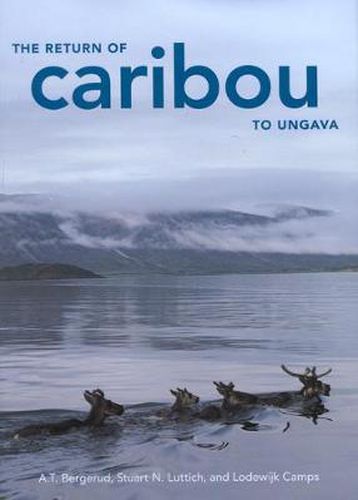Readings Newsletter
Become a Readings Member to make your shopping experience even easier.
Sign in or sign up for free!
You’re not far away from qualifying for FREE standard shipping within Australia
You’ve qualified for FREE standard shipping within Australia
The cart is loading…






The George River caribou herd increased from 15,000 animals in 1958 to 700,000 in 1988 - the largest herd in the world at the time. The authors trace the fluctuations in this caribou population back to the 1700s, detail how the herd escaped extinction in the 1950s, and consider current environmental threats to its survival. In an examination of the life history and population biology of the herd, The Return of Caribou to Ungava offers a synthesis of the basic biological traits of the caribou, a new hypothesis about why they migrate, and a comparison to herd populations in North America, Scandinavia, and Russia. The authors conclude that the old maxim, Nobody knows the way of the caribou, is no longer valid. Based on a study in which the caribou were tracked by satellite across Ungava, they find that caribou are able to navigate, even in unfamiliar habitats, and to return to their calving ground, movement that is central to the caribou’s cyclical migration. The Return of Caribou to Ungava also examines whether the herd can adapt to global warming and other changing environmental realities.
$9.00 standard shipping within Australia
FREE standard shipping within Australia for orders over $100.00
Express & International shipping calculated at checkout
The George River caribou herd increased from 15,000 animals in 1958 to 700,000 in 1988 - the largest herd in the world at the time. The authors trace the fluctuations in this caribou population back to the 1700s, detail how the herd escaped extinction in the 1950s, and consider current environmental threats to its survival. In an examination of the life history and population biology of the herd, The Return of Caribou to Ungava offers a synthesis of the basic biological traits of the caribou, a new hypothesis about why they migrate, and a comparison to herd populations in North America, Scandinavia, and Russia. The authors conclude that the old maxim, Nobody knows the way of the caribou, is no longer valid. Based on a study in which the caribou were tracked by satellite across Ungava, they find that caribou are able to navigate, even in unfamiliar habitats, and to return to their calving ground, movement that is central to the caribou’s cyclical migration. The Return of Caribou to Ungava also examines whether the herd can adapt to global warming and other changing environmental realities.